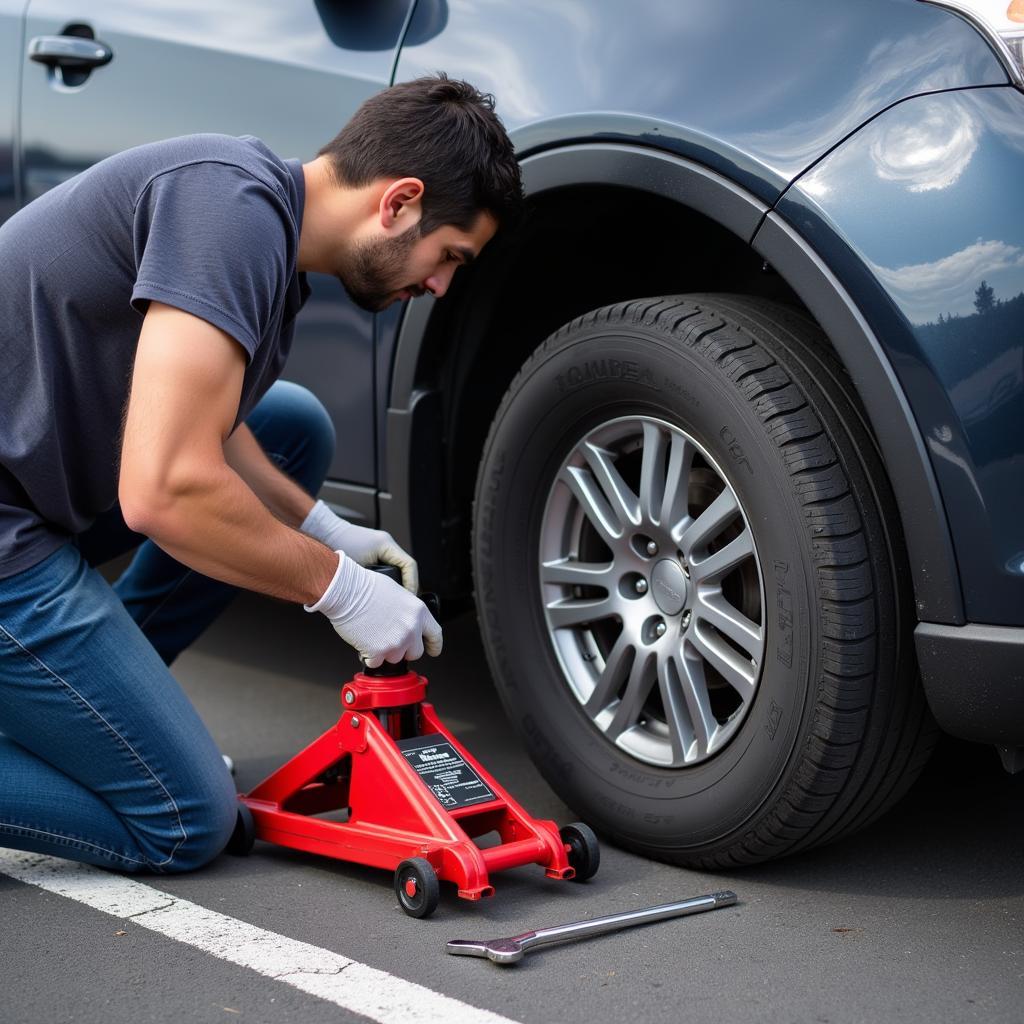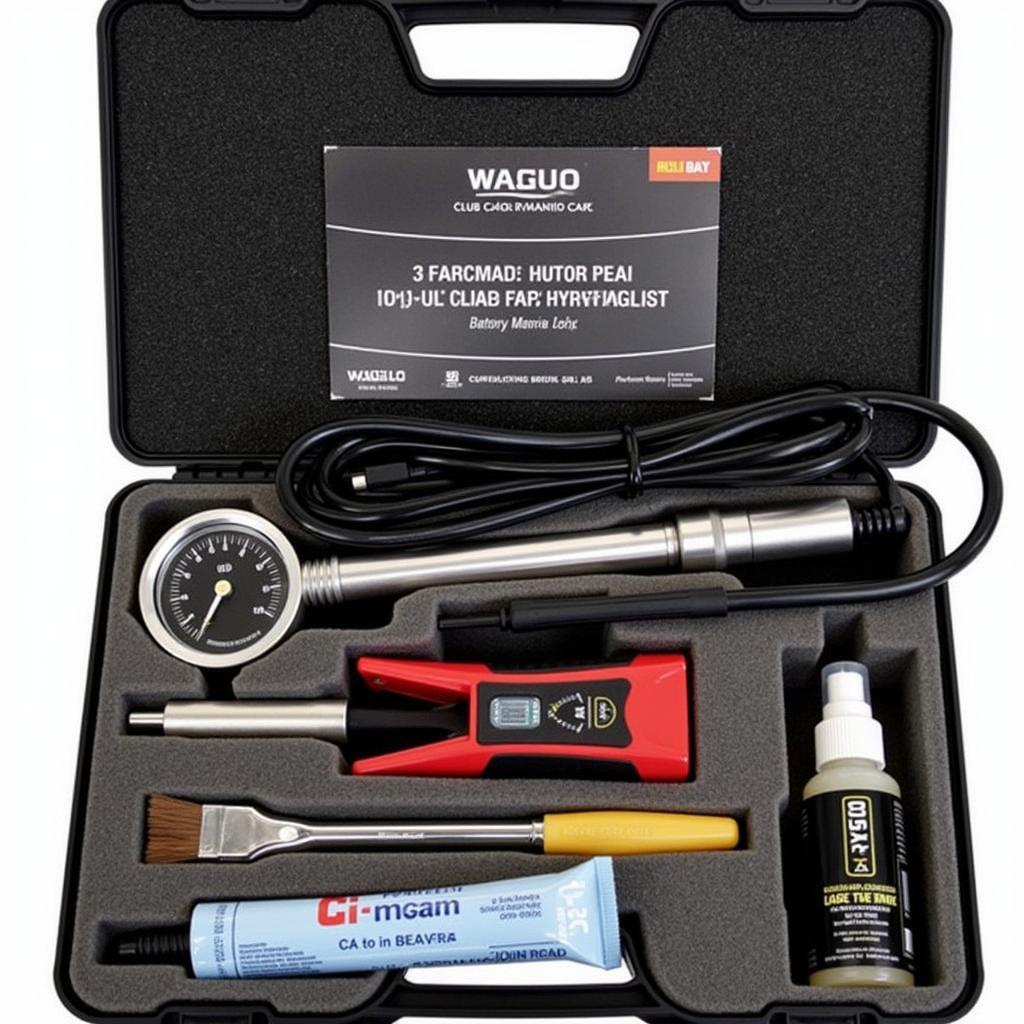A Car Hot Start Problem can be incredibly frustrating. Imagine this: your car starts perfectly fine in the morning, but after a short drive and a quick stop, it refuses to turn over when you try to start it again. This article dives deep into the common causes of hot start problems, provides troubleshooting tips, and offers solutions to get you back on the road quickly.
Understanding the Car Hot Start Problem
A hot start issue occurs when your car struggles to start after it’s been running and then turned off, typically after a short period. This differs from a cold start problem, which happens when the engine is cold after sitting for a long time. Understanding this distinction is crucial for proper diagnosis. Several factors can contribute to this frustrating issue, ranging from fuel system problems to faulty sensors.
Common Causes of Car Hot Start Problems
Fuel System Issues
One of the most frequent culprits behind hot start problems is the fuel system. When the engine is hot, fuel can vaporize in the lines, creating a vapor lock that prevents fuel from reaching the engine. A failing fuel pump can also struggle to deliver sufficient fuel pressure when hot. Finally, a clogged fuel filter can restrict fuel flow, exacerbating the problem.
Sensor Malfunctions
Various sensors play a vital role in engine operation. A malfunctioning coolant temperature sensor (CTS) can mislead the engine control unit (ECU) into thinking the engine is cold, resulting in an incorrect fuel mixture during a hot start. Similarly, a faulty crankshaft position sensor (CKP) can prevent the ECU from properly timing the ignition spark.
Ignition System Problems
A weak ignition coil can struggle to produce a strong spark when hot, leading to starting difficulties. Worn spark plugs can also contribute to the issue, as can damaged ignition wires.
Other Potential Causes
Beyond the common culprits, other factors can contribute to hot start problems. A leaking fuel injector can flood the engine with fuel, making it difficult to start. A faulty starter motor can struggle to crank the engine when hot, and even a vacuum leak can disrupt the air-fuel mixture, causing starting issues.
Diagnosing a Car Hot Start Problem
Pinpointing the exact cause requires a systematic approach. Start by checking the fuel system for leaks and vapor lock. Inspect the fuel pump pressure and ensure the fuel filter is clean. Next, examine the sensors, particularly the CTS and CKP. Use a diagnostic scanner to check for error codes. Finally, inspect the ignition system components, including the coils, spark plugs, and wires.
Solutions for Car Hot Start Problems
The solution depends on the diagnosed cause. A fuel system issue might require replacing the fuel pump, filter, or lines. Sensor malfunctions typically necessitate sensor replacement. Ignition system problems might involve replacing the coils, spark plugs, or wires. In some cases, a simple fix like cleaning the throttle body or fixing a vacuum leak can resolve the issue.
Preventing Future Hot Start Problems
Regular maintenance is key to preventing future issues. Regularly replace your fuel filter and spark plugs. Ensure your cooling system is functioning correctly to prevent overheating, which can exacerbate fuel vaporization. Address any leaks promptly, and have your car inspected by a qualified mechanic at the first sign of a problem.
Conclusion: Conquering the Car Hot Start Problem
A car hot start problem can be a real headache, but with the right knowledge and approach, you can diagnose and resolve the issue. From fuel system woes to sensor malfunctions and ignition system hiccups, this article has explored the common culprits and provided practical solutions. Regular maintenance and prompt attention to any warning signs are crucial for preventing future hot start problems. Need further assistance? Don’t hesitate to connect with the experts at AutoTipPro at +1 (641) 206-8880. Our office is located at 500 N St Mary’s St, San Antonio, TX 78205, United States.
FAQs
- What’s the difference between a hot start and a cold start problem? A hot start problem occurs when the car is warm, while a cold start problem happens when the engine is cold.
- Could a bad battery cause a hot start problem? While less likely, a weak battery can sometimes contribute to hot start issues.
- How often should I replace my fuel filter? It’s generally recommended to replace your fuel filter every 2 years or 30,000 miles.
- Can I fix a hot start problem myself? Some hot start problems can be addressed with DIY fixes, but more complex issues require professional help.
- What’s the first thing I should check if my car has a hot start problem? Start by checking the fuel system for leaks and vapor lock.
- Is it safe to drive with a hot start problem? While you might be able to drive, it’s best to address the issue promptly to avoid further damage or inconvenience.
- How can I prevent hot start problems in the future? Regular maintenance, including fuel filter and spark plug replacements, is key to prevention.






Leave a Reply